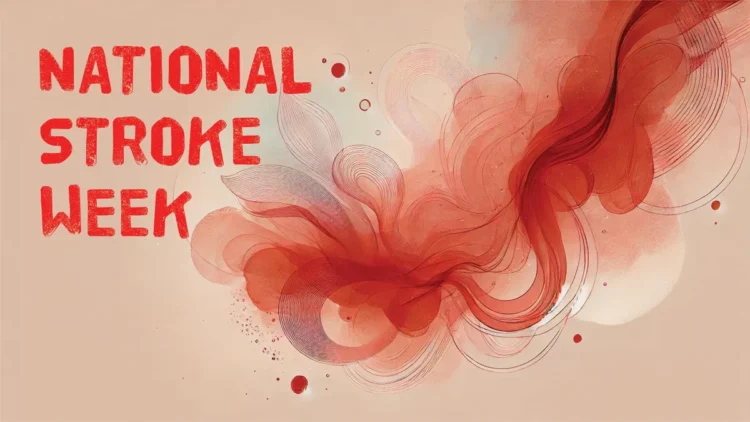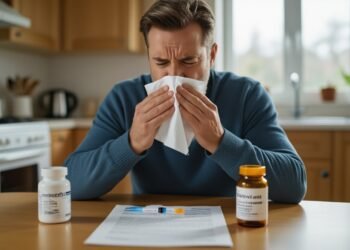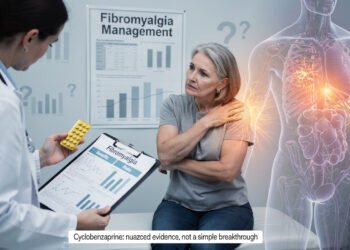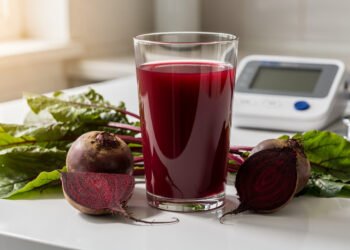Understanding Stroke – Prevention, Symptoms, and Recovery During National Stroke Week
National Stroke Week, observed from August 5-11 in Australia, is a crucial time to increase awareness about stroke prevention, symptoms, treatment, and recovery. This period provides a valuable opportunity for individuals and healthcare professionals to educate themselves on the various aspects of stroke and the best practices for managing it.
The Importance of Stroke Awareness
Stroke awareness is essential because it can save lives and improve recovery outcomes. A stroke occurs when the blood supply to part of the brain is interrupted or reduced, depriving brain tissue of oxygen and nutrients. Within minutes, brain cells begin to die. Understanding the risk factors and symptoms associated with stroke can help in early detection and prompt treatment.
Key Stroke Risk Factors
-
Hypertension: High blood pressure is the most significant risk factor for stroke.
-
Diabetes: Managing blood sugar levels is crucial as diabetes increases stroke risk.
-
Heart Disease: Conditions such as atrial fibrillation can lead to strokes.
-
Lifestyle Factors: Smoking, excessive alcohol consumption, and obesity increase stroke risk.
Recognising Stroke Symptoms
Knowing the symptoms of a stroke is vital for seeking immediate medical attention. The FAST acronym is a helpful guide:
-
Face Drooping: One side of the face droops or feels numb.
-
Arm Weakness: One arm becomes weak or numb.
-
Speech Difficulties: Slurred speech or difficulty speaking.
-
Time to Call Emergency Services: If any of these symptoms are present, it’s crucial to call emergency services immediately.
Other symptoms can include sudden confusion, trouble seeing in one or both eyes, sudden trouble walking, dizziness, or loss of balance.
Effective Stroke Prevention Strategies
Preventing a stroke involves addressing various risk factors through lifestyle changes and medical interventions.
Healthy Lifestyle Choices
-
Diet: Consuming a balanced diet rich in fruits, vegetables, whole grains, and lean proteins helps maintain healthy blood pressure and cholesterol levels.
-
Exercise: Regular physical activity helps reduce the risk of stroke by improving cardiovascular health.
-
Avoiding Tobacco and Excessive Alcohol: Smoking cessation and moderate alcohol consumption can significantly reduce stroke risk.
Medical Interventions
-
Regular Health Check-ups: Routine check-ups with healthcare providers can help manage conditions that increase stroke risk.
-
Medications: For individuals with high blood pressure, diabetes, or heart disease, medications can help control these conditions and reduce stroke risk.
Understanding Stroke Recovery
Recovery from a stroke can be a long and challenging process, but with proper support and rehabilitation, significant improvements can be made.
Rehabilitation Process
-
Physical Therapy: Helps regain movement and strength.
-
Occupational Therapy: Assists in relearning daily activities and improving coordination.
-
Speech Therapy: Aids in recovering communication skills and swallowing functions.
Emotional and Psychological Support
-
Counselling: Stroke survivors often benefit from psychological support to cope with the emotional impact of a stroke.
-
Support Groups: Connecting with others who have experienced similar challenges can provide encouragement and practical advice.
Stroke and Addiction: A Complex Relationship
While the focus of National Stroke Week is broad, understanding the intersection between stroke and addiction is critical for specific populations. Substance use disorders, including addiction to alcohol, illicit drugs, and prescription medications, can significantly affect stroke risk and recovery.
Increased Stroke Risk from Substance Use
-
Alcohol: Chronic excessive alcohol consumption is linked to hypertension and arrhythmias, which increase stroke risk.
-
Illicit Drugs: Drugs like cocaine and methamphetamine cause acute changes in blood pressure and vascular damage, heightening stroke risk.
-
Prescription Medications: Misuse of medications, such as opioids, can contribute to hypertension and cardiovascular disease.
Impact on Stroke Management
-
Adherence to Treatment: Substance use disorders can hinder adherence to prescribed medications and rehabilitation protocols, complicating recovery.
-
Co-Occurring Conditions: Individuals with addiction often have co-occurring conditions like hypertension or diabetes, exacerbating recovery challenges.
-
Social and Psychological Factors: Addiction influences lifestyle choices and stress levels, affecting overall health and stroke management.
Best Practices for Addressing Stroke and Addiction
For healthcare providers, a comprehensive and integrated approach is essential when dealing with patients affected by both stroke and addiction.
Comprehensive Assessment
-
Holistic Evaluation: Assess the patient’s substance use history, current patterns, and its impact on stroke risk factors.
-
Integrated Care Approach: Collaborate with addiction specialists, mental health professionals, and stroke rehabilitation teams for coordinated care.
Patient Education and Support
-
Risk Education: Educate patients on the relationship between substance use and stroke risk. Highlight the benefits of reducing or eliminating substance use for stroke prevention and recovery.
-
Behavioural Support: Offer support for lifestyle changes, such as smoking cessation and managing alcohol consumption.
Management and Treatment Strategies
-
Medication Management: Ensure adherence to prescribed treatment plans and address potential interactions between stroke medications and substances.
-
Rehabilitation and Recovery: Integrate addiction treatment into stroke rehabilitation plans to support comprehensive recovery and prevent relapse.
Addressing Co-Occurring Conditions
-
Monitor Comorbidities: Regularly monitor and manage conditions such as hypertension, diabetes, and cardiovascular disease, which impact stroke risk and recovery.
-
Holistic Care: Provide integrated care that addresses both addiction and stroke-related health issues to optimise overall health outcomes.
Support Systems and Resources
-
Referrals to Support Services: Connect patients with resources for addiction treatment, including counselling, support groups, and rehabilitation programs.
-
Community Resources: Encourage engagement with community resources that support healthy lifestyles and stroke prevention.
Conclusion
National Stroke Week is an excellent opportunity to focus on stroke awareness, prevention, symptoms, and recovery. By understanding the complexities of stroke and the impact of addiction, healthcare providers and individuals can enhance their approach to prevention, treatment, and recovery. Through comprehensive assessment, patient education, and integrated care, we can better support those affected by stroke, ultimately improving health outcomes and quality of life. Let’s use this week to deepen our commitment to addressing these critical issues and providing the best possible care for all individuals.


























